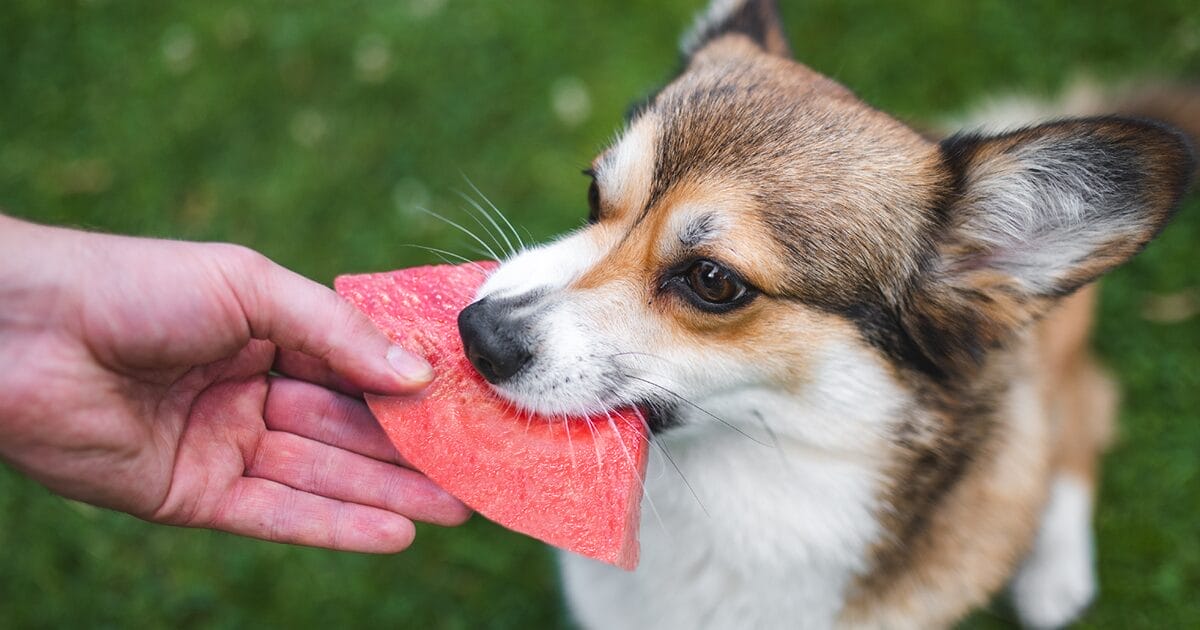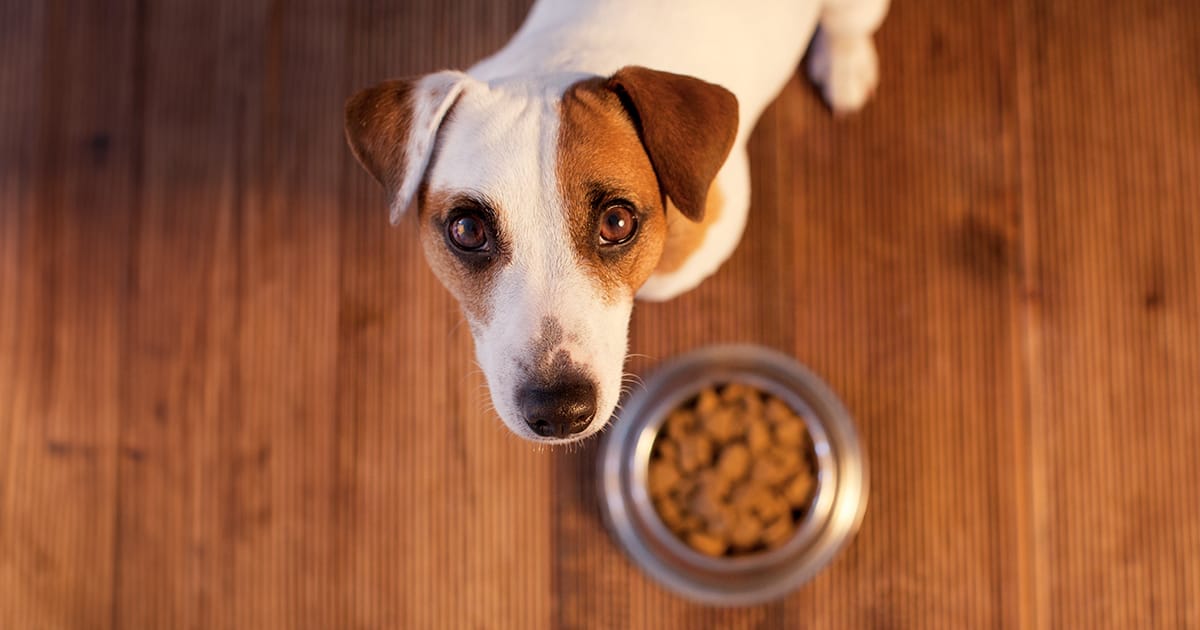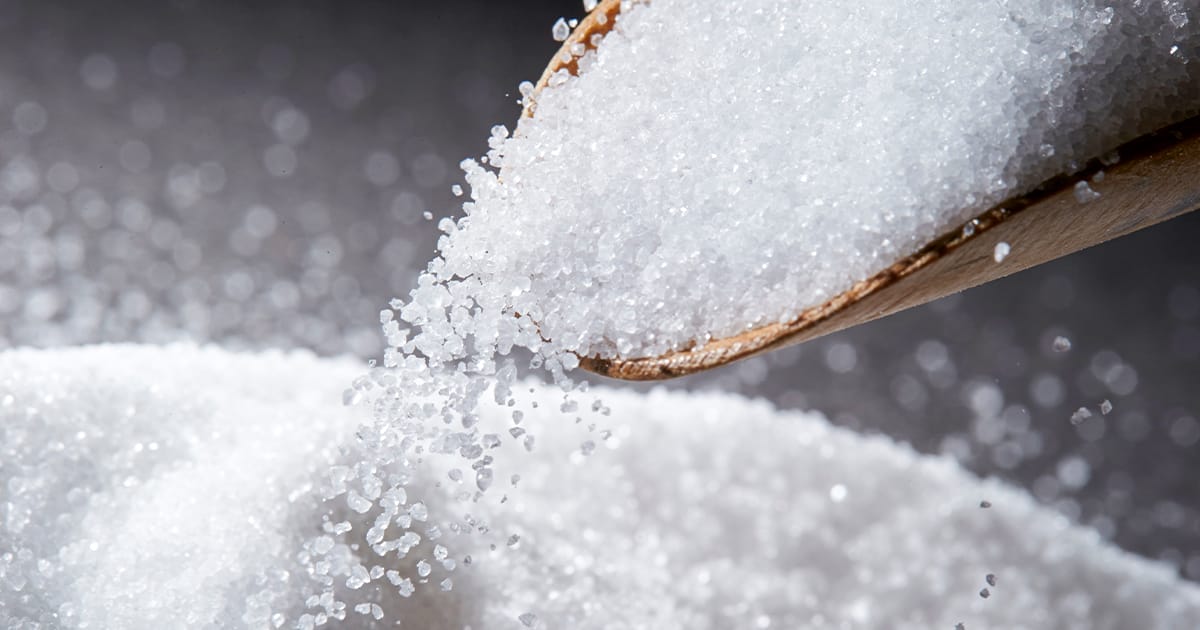
Human Foods Cats and Dogs Can Eat and Foods to Avoid
Cats and dogs can have human food treats occasionally. Learn which foods are safe and which to avoid.
Just like humans, cats and dogs enjoy food treats. While most pets can have occasional treats, eating them too often can cause gastrointestinal issues. If you want to share human food with your cat or dog, it’s essential to know which human foods are safe for them. In this blog post, we’ll explore some human foods that cats and dogs can enjoy, as well as a list of foods they should avoid.
Foods Cats and Dogs Can Enjoy
- Carrots
- Cats: Carrots are a low-calorie snack that can be a great treat for cats. They are rich in fiber and beta-carotene, which can help with digestion and eye health. However, cats are obligate carnivores (an animal that needs nutrients from animal-based proteins), so carrots should be given in moderation and as an occasional treat.
- Dogs: Dogs can also enjoy carrots. They are crunchy, which can help clean teeth and provide essential nutrients. Just make sure to cut them into small pieces to prevent choking.
- Cheese
- Cats: Cats are lactose intolerant, so too much cheese can cause digestive issues like diarrhea. Only give cats small, infrequent portions of low-lactose cheese like cheddar, mozzarella, or parmesan.
- Dogs: Dogs can enjoy cheese in moderation. It’s a good source of protein and calcium, but it’s also high in calories and fat, so it should be given as an occasional treat.
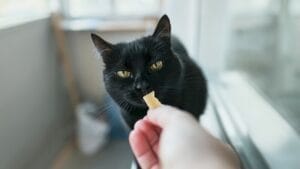
- Cooked Eggs
- Cats: Cooked eggs are a great source of protein, vitamins, and minerals for cats. They are easily digestible and can be a nutritious addition to their diet. Do not season the eggs as that can be harmful to cats and always ensure eggs are fully cooked to avoid the risk of salmonella.
- Dogs: Dogs can also benefit from cooked eggs. They are high in protein and essential fatty acids, which can help with muscle development and overall health. However, they are also high in cholesterol, so limit how often you offer them. Eggs should always be fully cooked before your pet consumes them.
- Marshmallows
- Cats: Marshmallows are not a nutritious snack for cats and should be given sparingly. They are high in sugar and offer little nutritional value. If you choose to give your cat a marshmallow, make sure it’s a very small piece.
- Dogs: Dogs can enjoy marshmallows in moderation. They are a sweet treat that can be used for training or hiding and administering medications to your pet, but they are high in sugar and calories. Use them sparingly. Additionally, be sure to check the ingredients label and avoid xylitol, a sugar substitute, which is highly toxic to pets.
- Green Beans
- Cats: Green beans can be a healthy snack for cats, although it may not be their preferred snack. They are low in calories and high in fiber, which can aid in digestion.
- Dogs: Green beans are a fantastic low-calorie snack for dogs. They are rich in fiber, vitamins, and minerals, making them a great option for dogs, especially those on a weight management plan. Always serve them plain and unseasoned. Rinse off canned green beans before giving them to your pet to decrease the sodium content.
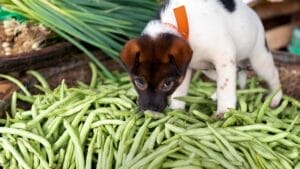
- Peanut Butter
- Cats: Cats can have a small amount of peanut butter, but it should be given infrequently. Peanut butter is high in fat and calories, so it should not be a regular part of a cat’s diet. Read the peanut butter label to ensure it is free from xylitol.
- Dogs: Dogs love peanut butter, and it can be a great treat for them. It’s a good source of protein, healthy fats, and vitamins. Dogs can enjoy peanut butter in moderation. Always choose unsalted and xylitol-free peanut butter.
- Salmon
- Cats: Salmon is a nutritious food for cats. It’s rich in omega-3 fatty acids, which can help with skin and coat health, and it’s a good source of protein. Always serve salmon well-cooked, without any seasoning, and double-check that all bones have been removed. Raw and undercooked salmon can contain the neorickettsia helminthoeca parasite, which can be fatal.
- Dogs: Dogs can also benefit from salmon to help with joint health and reduce inflammation. Salmon can boost your cat or dog’s immune system and help their coats look shiny.
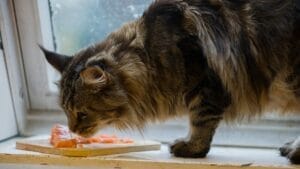
Foods Cats and Dogs Should Avoid
- Xylitol
- Cats and Dogs: Xylitol is a sweetener commonly used in gum, baked goods, peanut butter, and many products designed for people with diabetes due to its low glycemic index and low-calorie content. While it is safe for humans to consume, it is highly toxic to dogs. Xylitol can cause low blood sugar and liver failure in dogs, although xylitol toxicity has not been documented in cats. Hypoglycemia (low blood sugar) is triggered by insulin release stimulated by xylitol. This effect typically lasts 12 to 24 hours but can sometimes be delayed. Always check the ingredients of any food or treat before giving it to your pet. For more information on xylitol, read our in-depth blog post on the topic.
- Chocolate
- Cats and Dogs: This tasty human treat can cause serious health issues for dogs, even in small amounts. Chocolate contains theobromine and caffeine, which are toxic to pets. These substances can cause vomiting, diarrhea, tremors, seizures, heart failure, and even death. Dark chocolate is more dangerous than milk chocolate, but all types should be avoided. Learn more about chocolate toxicity and other health hazards for pets in this blog post.

- Alcohol
- Cats and Dogs: Alcohol is extremely toxic to both cats and dogs. It can cause severe liver and brain damage, leading to coma and death. Even small amounts can be fatal, so it’s important to keep all alcoholic beverages out of reach.
- Onions, Garlic, and Chives
- Cats and Dogs: These foods contain a chemical called N-propyl disulfide, which is extremely toxic to dogs. When ingested, the chemicals damage your pet’s red blood cells, leading to severe anemia. Pets who are anemic are at-risk for organ damage, organ failure, and death. Even small amounts can be harmful, so it’s important to keep them away from both cats and dogs.

- Macadamia Nuts
- Cats and Dogs: It is unknown what about these nuts causes toxicity in dogs, but they can cause dogs to experience weakness, vomiting, hyperthermia (overheating), and tremors. While the toxicity in cats is less well-documented, it’s best to avoid giving them macadamia nuts altogether.
- Cooked Bones
- Cats and Dogs: Cooked bones can splinter, which can cause intestinal perforations when ingested. They can become lodged in a pet’s intestines, which could require emergency surgery.
- Raisins and Grapes
- Cats and Dogs: Not all dogs react to raisins and grapes, but they cause toxicity in some dogs, including kidney failure. While the toxicity in cats is less known, it’s best to err on the side of caution and avoid giving them these foods.
Always consult with your veterinarian if you have any concerns about your pet’s diet. By making informed choices, you can ensure that your pets stay healthy and happy.
Visit our Pet Care Resources library for more pet health and safety information.
FAQs
Can my dog eat human food?
Can my cat eat human food?
What human food should my dog avoid?
What human food should my cat avoid?
Learn More
For ways to ensure your pet lives a happier, healthier life, visit our Pet Care Resources.
Pet Care ResourcesContents
Learn More
For ways to ensure your pet lives a happier, healthier life, visit our Pet Care Resources.
Pet Care Resources
